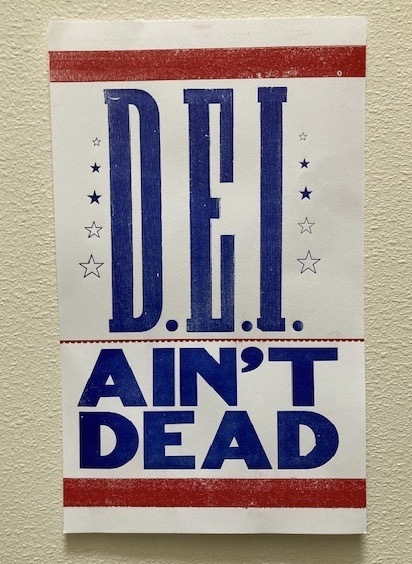DIVERSITY, EQUITY, and INCLUSION POLICY
LWV is an organization fully committed to diversity, equity, and inclusion in principle and in practice. Diversity, equity, and inclusion are central to the organization's current and future success in engaging all individuals, households, communities, and policy makers in creating a more perfect democracy.
Discrimination or harassment of any kind will not be accepted within the League, including but not limited to race, socio-economic status, age, ability status, religion, sexual orientation, national origin, gender identity, or marital status. The League is committed to fostering, cultivating, and preserving a culture of diversity, equity, inclusion, access, and belonging for all people. The League is an organization that respects and values the richness of our community and our members. The collective sum of our individual differences and life experiences represents not only our culture, but our reputation and the organization's mission and achievements as well.
LWVTC Board Approved 8/28/24
Land Acknowledgement
Today, we acknowledge the original stewards of the land we call Thurston County: the Nisqually, the Chehalis, and the Squaxin Island people who thrived here for thousands of years. We also confront the truth that their land was unjustly taken, causing generations of trauma to its people.
Acknowledgement is just the beginning. It is our responsibility to educate ourselves on the history of these tribal nations, on our joint history, and on the role they continue to play in the Thurston County community. We must create authentic connections with our neighbors, amplify their voices, recognize the unique concerns they face, and support their continued call for justice.
DEI & JUSTICE STEERING COMMITTEE MEETINGS

Join us:
Thursday, June 12
On zoom 6:30-8:00p
Agenda:
Strategic Planning Conversation - Come to our next meeting with measurable goals for getting more members involved in DEI & J work
Debrief Thurston Forward DEI Summit
Debrief LWVWA Convention
Announcements/Community events
Join Zoom Meeting
Meeting ID: 845 4221 0315
Passcode: 988669